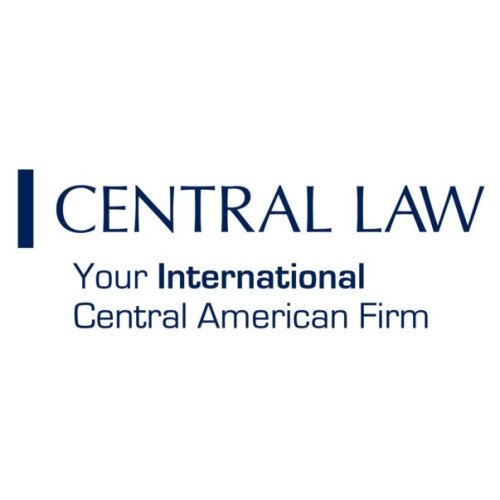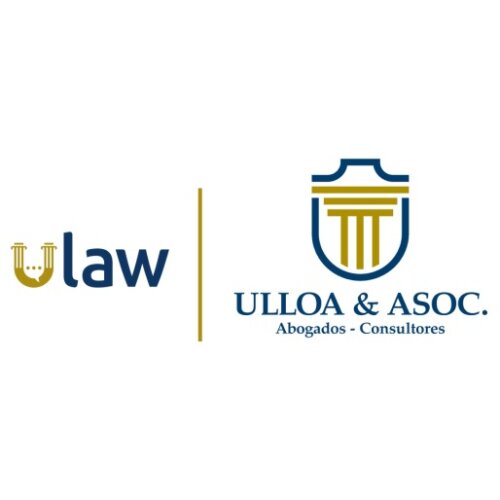Best Faith-Based Law Lawyers in San Pedro Sula
Share your needs with us, get contacted by law firms.
Free. Takes 2 min.
List of the best lawyers in San Pedro Sula, Honduras
About Faith-Based Law in San Pedro Sula, Honduras
Faith-Based Law in San Pedro Sula, Honduras, refers to legal matters where religious beliefs and practices intersect with the country's legal system. This can involve issues such as marriage and divorce, religious discrimination, freedom of religion, and the operation of religious institutions. Honduras recognizes the importance of religion in its cultural and legal framework, which often requires navigating between secular and religious laws. In San Pedro Sula, a city with a diverse array of religious communities, understanding these laws is crucial for both individuals and organizations.
Why You May Need a Lawyer
If you are navigating a legal issue that involves religious principles or practices, a lawyer specialized in Faith-Based Law can provide invaluable assistance. Common situations where you may need legal help include:
- Disputes regarding religious marriages or divorces.
- Resolving conflicts related to religious property or donations.
- Addressing instances of religious discrimination in workplaces or schools.
- Assistance with the incorporation and governance of religious organizations.
- Advising on compliance with both religious and secular obligations.
- Disputes over the interpretation of religious laws within community contexts.
Local Laws Overview
In San Pedro Sula, Faith-Based Law is influenced by both national legislation and local ordinances. Key aspects of the local legal landscape include:
- Recognition of Religious Marriages: While civil marriage is required by law, religious ceremonies are often significant. Proper recognition and registration of these ceremonies are crucial.
- Religious Freedom: The Honduran Constitution guarantees freedom of religion, and local laws in San Pedro Sula affirm these rights, often protecting religious expression.
- Religious Institutions: Establishing a religious organization requires compliance with both civil and religious regulations, including registration and tax obligations.
- Discrimination Laws: Legal provisions exist to protect individuals from discrimination based on religion in employment, education, and public life.
Frequently Asked Questions
1. What is the role of religion in local law?
Religion can influence various legal practices in San Pedro Sula, especially in personal and family law. Understanding how religious and civil laws interact is important for religious communities.
2. Can religious laws overrule civil laws?
No, civil law holds ultimate authority. However, religious considerations can play a role in resolving certain civil disputes if all parties agree.
3. How do I establish a religious institution legally?
You need to register your institution with the appropriate government bodies, comply with tax obligations, and adhere to both civil and religious statutes relevant to your faith.
4. What protections exist against religious discrimination?
Both national and local laws prohibit discrimination based on religion. Victims have legal recourse for discrimination in employment, education, and public services.
5. Are religious marriages legally recognized?
Religious marriages must be legally registered for recognition. Couples often have both a religious ceremony and a civil registration.
6. How are religious disputes resolved?
Disputes are usually resolved based on mutual agreement, involving community leaders or faith-based mediators. Legal intervention is used when necessary.
7. How can religious beliefs affect my employment rights?
Employees are protected from discrimination based on their religious beliefs, and employers must reasonably accommodate religious practices unless it causes undue hardship.
8. Can I educate my child in a religious manner?
Yes, parents have the right to educate their children according to their religious beliefs, within the bounds of national education requirements.
9. Do foreign religious organizations have to follow the same laws?
Yes, foreign religious organizations must comply with Honduran laws when operating within the country, including registration and tax obligations.
10. How do inheritance laws interact with religious practices?
Inheritance laws are civil but can include religious considerations if they do not conflict with civil statutes and if all parties involved agree.
Additional Resources
For more support, consider the following resources:
- Ministry of Justice and Human Rights: Provides guidance on religious freedom and discrimination issues.
- The Catholic Church and Protestant councils often offer legal advice and mediation services.
- Local legal aid organizations may provide free or low-cost legal assistance tailored to religious communities.
Next Steps
If you need legal assistance in Faith-Based Law, it is essential to:
- Research and understand your rights under both civil and religious laws.
- Contact a lawyer who specializes in Faith-Based Law to discuss your situation.
- Gather relevant documentation and evidence related to your case.
- Seek mediation from religious community leaders if applicable.
- Be proactive in resolving issues through legal channels if initial measures do not resolve the matter.
Lawzana helps you find the best lawyers and law firms in San Pedro Sula through a curated and pre-screened list of qualified legal professionals. Our platform offers rankings and detailed profiles of attorneys and law firms, allowing you to compare based on practice areas, including Faith-Based Law, experience, and client feedback.
Each profile includes a description of the firm's areas of practice, client reviews, team members and partners, year of establishment, spoken languages, office locations, contact information, social media presence, and any published articles or resources. Most firms on our platform speak English and are experienced in both local and international legal matters.
Get a quote from top-rated law firms in San Pedro Sula, Honduras — quickly, securely, and without unnecessary hassle.
Disclaimer:
The information provided on this page is for general informational purposes only and does not constitute legal advice. While we strive to ensure the accuracy and relevance of the content, legal information may change over time, and interpretations of the law can vary. You should always consult with a qualified legal professional for advice specific to your situation.
We disclaim all liability for actions taken or not taken based on the content of this page. If you believe any information is incorrect or outdated, please contact us, and we will review and update it where appropriate.











